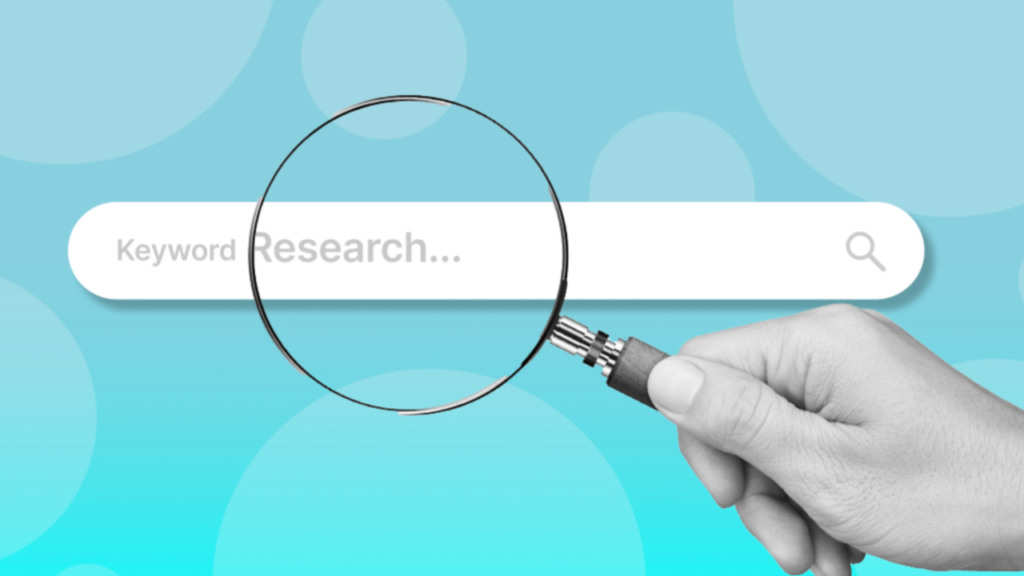Welcome to the definitive SEO for Shopify Stores guide, your one-stop shop for maximizing your online storefront’s digital potential. In this extensive book, we’ll explore Search Engine Optimization’s nuances, including tactics designed especially for Shopify. We can help you increase sales, drive targeted visitors, and improve your store’s exposure.
Come along with us on a trip to improve your Shopify store and maximize its influence in the cutthroat online market, regardless of experience level in e-commerce. Creating an engaging and productive online shopping experience is more critical than focusing only on items. Let’s review SEO for Shopify Stores and see how SEOJust can help you create a successful online business.
What is SEO for Shopify Stores?

The art and science of SEO for Shopify Stores involves making your online store more visible in search engine results, which will increase organic traffic and attract new buyers to your online business. It entails several calculated tactics, such as improving site performance, creating high-quality backlinks, and refining product pages and meta tags.
The goal is to increase your Shopify store’s visibility on search engines like Google to appear among the top results when someone looks for a product you sell. The objective? Help draw in more customers, raise the exposure of your online store, and eventually improve revenue. It’s similar to spotlighting your goods in the significant internet marketplace to ensure prospective buyers see them.
Also Read: Search Engine Marketing Intelligence | A Comprehensive Guide
Why Should You Invest In SEO For Shopify Stores?

Putting money into Shopify SEO is like sowing seeds for a successful online garden. Above all, it makes your store far more visible on search engines, making it easier for customers to find you when they seek what you sell. Increased organic traffic due to this visibility allows you to attract new clients consistently without relying entirely on paid advertising.
SEO enhances the Shopify store’s customer experience. It guarantees customers a seamless and pleasurable purchasing experience with quicker load times, responsive mobile design, and easy navigation. This maintains consumer satisfaction and helps your website rank better in search results.
Investing in SEO attracts a focused audience actively looking for what you have to offer rather than just garnering clicks at random. There is a greater chance that this high-quality traffic will result in actual purchases. Additionally, SEO aids in the development of credibility and trust as it tells people that you are a trustworthy source when your business frequently appears in search results.
SEO for Shopify is the magic ingredient that drives your business ahead in the cutthroat world of e-commerce and makes you stand out from the plethora of competitors.
Also Read: Why Local SEO Is Important For Small Business
How do you improve SEO for your Shopify Stores?

Conduct keyword research
Researching keywords for your Shopify store is similar to deciphering your consumers’ code. It entails figuring out the precise terms and expressions that members of your target market use to look for goods or services that are comparable to yours. You may learn a great deal about the purpose and behavior of your customers by researching these terms.
You’re basically matching your Shopify store with what your consumers are actively searching for when you deliberately add these keywords to your meta tags, product descriptions, and other content. This optimization informs search engines that your store is a trustworthy and pertinent resource for that particular inquiry.
You may find long-tail keywords or more precise and detailed phrases by conducting keyword research. By including these, you may increase your content’s likelihood of ranking for specialized searches and draw in highly targeted, well-informed consumers.
Keyword research is your compass in online buying, directing prospective clients to your virtual door. It’s all about communicating with your audience in their language and ensuring they can find your Shopify business quickly when searching for anything similar.
Remove Duplicate Content
Eliminating redundant material from your Shopify store is vital in creating a more orderly, streamlined, search-engine-optimized online business. It’s similar to clearing out your digital shelves. When identical material appears on several pages, it is considered duplicate content and may not be preferred by search engines.
By eliminating duplicate material, you make it very evident to search engines that your Shopify store values quality and offers customers a unique, worthwhile experience. This can thus have a favorable effect on your search engine results.
Your SEO efforts may be less effective if you provide duplicate material. Search engines may need help identifying which page is the most relevant for a given search query when they find the same content on several sites. This might result in a dispersed ranking, where your pages compete with one another instead of cooperating to improve your overall SEO performance.
Users may find it annoying and have a less positive experience if they keep seeing the same information. You may improve user happiness and raise the chance of engagement and conversions by condensing your information and offering a straightforward, unique story. A clear, well-structured, original content strategy is essential for Shopify store SEO.
Create SEO Friendly URLs
Developing SEO-friendly URLs for your Shopify store is similar to offering obvious directions in a busy online marketplace. These URLs function as the addresses for every page on your website, and when they are improved, they may significantly improve your SEO strategy as a whole.
First off, concise and informative URLs are conducive to SEO. They offer a preview of the page’s content, which helps consumers and search engines know what to anticipate. Search engines will regard your site more credibly if it has a clear, relevant URL, making it easier for users to browse and enhancing user experience.
Adding pertinent keywords to your URLs is just another crucial component. Search engines examine URLs to see if they are relevant to user queries. You can improve your results for particular search phrases by indicating to search engines that your Shopify shop contains content that matches those terms by integrating targeted keywords into your URLs.
Additionally, shareable and memorable URLs are optimized for search engines. Clean, organized URLs facilitate easier link copying and paste operations and strengthen brand awareness while consumers remember your website.
Improving the URLs of your Shopify store is like posting road signs for search engines and prospective buyers in the cutthroat world of e-commerce, where every click counts.
Also Read: Top 10 Affordable Local SEO Services In 2024
Optimize Your Shop’s Images
Ensuring every product on your Shopify store is shown to its full potential online is analogous to optimizing the shop’s photos for search engines. Improving the visual attractiveness of your items and your overall search engine results are both greatly aided by image optimization.
Photos that are scaled correctly and compressed help websites load more quickly. Fast page loads enhance user experience and tell search engines that your website is practical and easy to use. Speed is a crucial component of SEO.
Another critical component of picture optimization is alt text or alternative text. Not only does this improve accessibility for those with vision impairments, but it also provides search engines with helpful information about the content of your photos when you include descriptive alt text for them. Better ranks may result from this, particularly in picture search results.
Your SEO efforts are further enhanced by carefully choosing pertinent keywords to include in your image’s alt text and file names. This gives search engines more context, improving their comprehension of your photographs’ relevancy and substance concerning specific search queries.
A pleasant user experience also includes having visually appealing and high-quality photos, which may result in improved conversion rates, longer dwell times, and more engagement.
Include Rich Snippets Wherever Possible
It’s similar to boosting your search engine listings to make them stand out in the online marketplace when you add rich snippets to your Shopify store. Rich snippets are extra details that appear next to your standard search result, giving consumers an idea of what your website is about.
Rich snippets, first and foremost, improve your listings’ visibility and click-through rates. Adding supplementary details like product ratings, reviews, pricing, and availability straight into the search results gives consumers a brief overview of the value your Shopify store provides. As a result of the enhanced exposure, click-through rates may rise since consumers are more inclined to select the result that offers the most thorough and pertinent information at a glance.
Additionally, rich snippets make searching more exciting and educational. Customers who see these extra snippets get a better idea of the material before they click through to your website. Examples of these snippets include product star ratings, event details, and recipe information.
Rich snippets may raise your listings’ search engine rankings by making them more enticing to people and search engines alike. Rich snippets give structured data that search engines value since it makes it easier for them to comprehend the context of your content and present consumers with more accurate results.
Write compelling title tags.
Like writing eye-catching headlines for a shop, crafting effective title tags for your Shopify store can pull in both search engines and potential buyers. As the first item consumers see in search engine results, title tags are essential in deciding whether a person will click through to your website.
Above all, a well-written title tag summarizes the page’s information. It must be brief, evocative, and contain pertinent phrases that prospective buyers could type into search engines. This indicates to search engines that your material is relevant to particular themes and helps people comprehend the purpose of your website.
Title tags have to be intriguing and captivating in addition to being descriptive. Consider them like a news article’s headline; they must attract readers and entice clicks. Your listings can stand out from the competition by using keywords that have an impact, emphasizing urgency, or emphasizing unique selling propositions in your title tags.
Uniformity is essential when it comes to title tags for your Shopify site. A distinct and well-optimized title tag for every page helps create a more streamlined and approachable website architecture. Because of this uniformity, search engines find it easier to crawl and index your sites.
Title tags with optimal optimization can help a website rank better in search results. Positive feedback loops may increase your site’s exposure in search results when consumers find your titles exciting and pertinent and when search engines comprehend the content of your pages.
Increase Website Speed
In the realm of online commerce, speed is the unsung hero. A speedier Shopify site will result in happy consumers and improved SEO performance. Getting your website faster is like adding a turbocharger to your store, which will help it win the online race.
First off, faster websites offer a more satisfying surfing experience. Instant gratification is what customers anticipate in the fast-paced online world. If the loading time of your Shopify store is excessive, visitors can leave and visit rivals’ websites. Quicker load times immediately increase user satisfaction, retaining visitors’ interest and increasing their likelihood of investigating your offerings.
The website’s speed is crucial to search engine optimization (SEO) rankings. You tell search engines that your website is dependable, helpful, and deserves more attention when you optimize your Shopify store for speed.
Cutting down on page load times may help your business financially, pleasing consumers and search engines. Research has demonstrated a clear link between higher conversion rates and quicker load times. Fast load times for your Shopify store increase the likelihood that potential buyers will finish their purchases, which increases income and sales.
Create an internal link strategy.
Developing a well-structured internal linking strategy for your Shopify store is similar to creating a roadmap that makes it easy for users and search engines to traverse your online business. You may build a unified online experience that improves user experience, supports SEO, and increases overall site exposure by integrating different pages on your website.
First, internal linking facilitates consumers’ easy discovery of similar material. Internal links placed thoughtfully across your Shopify site may direct visitors to other pertinent goods, categories, or instructional pages while browsing one page. This increases the chance of conversion by helping consumers locate what they’re seeking while keeping them interested.
Furthermore, organized internal linking is highly favored by search engines. Search engine crawlers are guided through the structure and significance of various pages on your website by each internal link. You can increase the visibility of high-authority pages in search results by proactively signaling to search engines that these linked pages are essential.
Developing an internal link-building plan can also help your Shopify store distribute page authority and relevance. You may spread the SEO love by including links from sites with high SEO value to those that require improvement. This can boost the exposure and search engine ranking of lesser-known pages, which can help your site’s SEO overall.
Get Backlinks to Your Shop
Getting high-quality backlinks is like creating a web of reliable references for your Shopify business all across the internet. In essence, backlinks, often referred to as inbound links, are other websites endorsing the importance and pertinence of your material. This improves your store’s authority and is essential to raising its search engine ranking.
First of all, backlinks are a sign of support from other sources. Search engines see links from credible websites pointing to your Shopify store as a sign of valuable and reliable content. A connecting site’s influence on enhancing your shop’s trustworthiness in search engine results increases with its authority.
Backlinks significantly impact your shop’s visibility in search engine rankings. The number and caliber of backlinks are taken into account by search engines when deciding how highly to rank your sites. A carefully considered backlink strategy may help your Shopify store rank higher in search results, increasing the likelihood that prospective buyers will find your goods or services.
Creating content, working together, and reaching out are necessary to build backlinks. High-quality backlinks may be achieved by active participation in industry forums, influencer outreach, and guest blogging on pertinent sites. Furthermore, producing high-quality, shareable content for your Shopify store may organically draw links from other websites, increasing your business’s visibility online.
FAQs
1. Does SEO matter for my Shopify store?
Naturally, of course! SEO is crucial for your store to increase internet visibility, attract more clients, and increase sales. It ensures that prospective customers may find your products or services when they conduct an internet search.
2. How often should I modify my product descriptions for SEO purposes?
Frequently scheduled updates are beneficial. Continue to write relevant, current, and keyword-rich product descriptions. This will appeal to customers and be seen by search engines as proof that your content is current and relevant.
3. Can I raise the local SEO of my Shopify store?
Naturally, of course! Promote customer testimonials, turn on Google My Business, and utilize localized keywords. Customers in specific locations will find your store more efficiently, thanks to local SEO.
4. Why is page speed such an essential factor in SEO for shopify stores?
Fast-loading pages enhance user experience and raise a website’s search engine ranking. In addition to deterring visitors, slow websites can negatively impact your SEO.
5. How can backlinks help my Shopify store’s SEO?
Backlinks, or referrals from other websites, improve your shop’s search engine rankings and credibility. Search engine optimization requires a robust backlink profile.
Conclusion
The success of a Shopify business in the dynamic world of e-commerce depends on SEO for shopify stores. Your store may get a competitive edge in the online market by using the strategies covered in this guide, which range from improving product descriptions to building high-quality backlinks. Remember that SEO calls for ongoing development and adjustment to the dynamic digital environment. It is a continuous effort. You may effectively engage your audience, broaden the visibility of your Shopify store, and observe as your online business expands with the aid of SEO.




